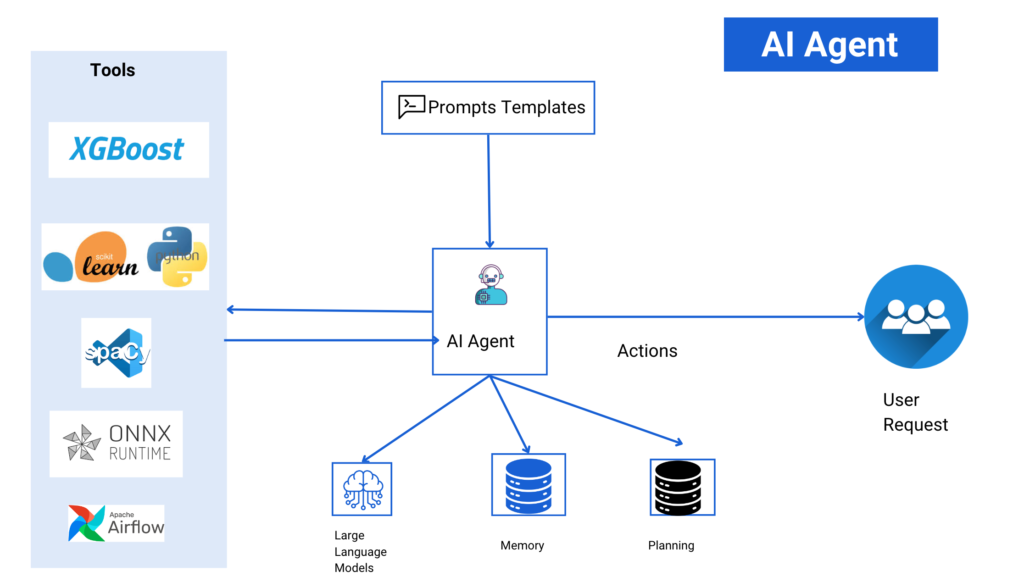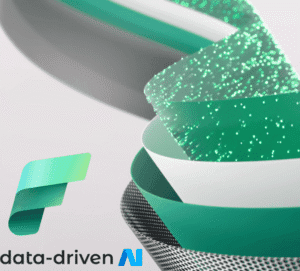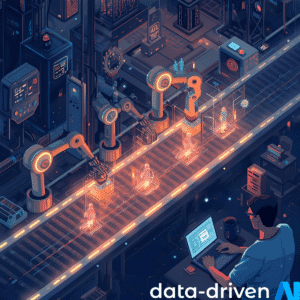Agentic AI Integration: Turning Ordinary Processes into Extraordinary Outcomes
Agentic AI Integration is no longer a futuristic idea — it’s a practical reality transforming how enterprises scale AI. Gone are the days when AI agents worked in silos, answering simple queries or performing isolated tasks. Today, Microsoft’s Agent Factory provides developers with the tools and open standards needed to connect agents, apps, and data seamlessly. Think of it as giving your AI agents a universal language so they can collaborate, share context, and deliver real business outcomes — without making developers pull their hair out.
Enterprises can now move from pilot experiments to production-grade deployments safely, with frameworks like Model Context Protocol (MCP) and Agent-to-Agent (A2A) ensuring agents understand each other and follow governance rules.

What Microsoft’s Agent Factory Teaches Developers
Microsoft’s Agent Factory isn’t just a tool; it’s a philosophy. It teaches developers that building intelligent systems isn’t about creating isolated bots but about crafting interconnected agents that can:
Share Context: With MCP, agents can access and understand the context of their tasks, leading to more informed decisions.
Collaborate Across Ecosystems: A2A allows agents to communicate and coordinate actions, even if they’re running on different platforms.
Integrate Seamlessly: Built-in connectors to services like Dynamics 365, ServiceNow, and custom APIs mean agents can plug into existing business systems without reinventing the wheel.
These capabilities shift the development focus from individual agent functionality to orchestrated, multi-agent workflows that drive real business outcomes.
Business Implications: Why Governance & Integration Matter
For enterprises, the promise of Agentic AI Integration isn’t just about automation; it’s about scalability, compliance, and governance. As AI agents become more prevalent, ensuring they operate within defined policies and interact harmoniously with existing systems becomes crucial. Microsoft’s Agent Factory provides:
Enterprise Integration Fabric: Thousands of connectors into SaaS and enterprise systems ensure agents act where business happens without developers rebuilding integrations from scratch.
Governance Controls: Role-based access, policy enforcement, and audit trails help maintain oversight and compliance.
Observability Tools: Built-in monitoring and tracing capabilities allow teams to track agent interactions and performance, ensuring reliability and trustworthiness.
These features empower organisations to deploy AI agents confidently, knowing they adhere to internal standards and regulatory requirements.
Case Study: Odie Bot
Consider the deployment of Odie Bot for Transport for NSW. This virtual helpdesk agent, embedded into the Open Data Hub, showcases the power of Agentic AI Integration. By leveraging MCP and A2A, Odie Bot can:
Access Real-Time Data: Retrieve up-to-date information from various sources to assist users effectively.
Collaborate with Other Agents: Coordinate with backend systems and other agents to provide comprehensive support.
Ensure Compliance: Operate within the governance frameworks set by the organisation, maintaining data privacy and security.
The success of Odie Bot illustrates how Agentic AI Integration can transform customer service operations, making them more efficient and responsive.
Conclusion
Agentic AI Integration isn’t just a tech trend — it’s a game-changer for enterprises aiming to scale AI responsibly and effectively. Microsoft’s Agent Factory, with its open standards like MCP and A2A, ensures that agents don’t work in silos but communicate, collaborate, and deliver meaningful business outcomes.
Organisations can now move from isolated pilots to production-ready AI systems while keeping governance, compliance, and reliability front and centre. This approach not only streamlines workflows but also reduces operational friction, enabling teams to innovate faster without compromising control.
Real-world examples like Odie Bot highlight how conversational AI agents can transform user experiences and internal efficiency. Beyond Odie Bot, our AI Governance Services help enterprises establish policy frameworks and compliance controls for all AI deployments.
Read the orignal blog in detail at Agent Factory: Connecting agents, apps, and data with new open standards like MCP and A2A | Microsoft Azure Blog




